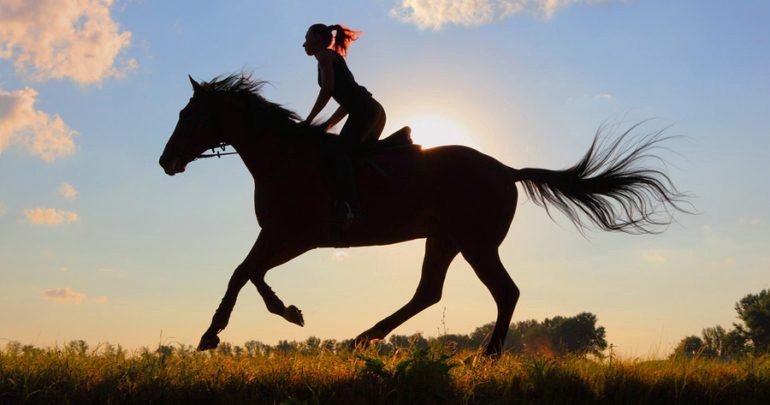We are taught to be afraid of failure. “Failure” is believed to be the word we must never say — the red mark we must never allow onto our record.
At first glance, it is easy to see why. Failure is, at face value, the opposite of success. To have failed at something is not to have succeeded in it.
But you know what’s much, much worse? Never having tried to do the thing at all.
This is why the most successful people know that failure is, in fact, the first step to success.
I have a passion for horses. They’re one of the few animals I find fascinating. I feel a true connection when I am with them; a connection that goes beyond the words we frail humans use to communicate.
One sunny April day in Morocco, I was riding my favorite horse to enjoy the beautiful weather. This particular horse was very stubborn and had a lot of character — probably the reason I kept choosing to ride him. He may not have always done what I wished, but he had a personality. And that made our connection much more intense.
Obviously, though, it came with risks.
On this particular day, my beloved horse saw a few dogs barking at us from the road. He bucked, as though to frighten them off — and threw me off instead.
Being thrown from a horse is not a pleasant experience. In fact, it’s terrifying. Every year, some riders are seriously injured that way. You’re being thrown through the air from a considerable height, often at a high speed. You have no control over how you land and where you land.
As it happened, I was fine. It was a painful experience — and embarrassing besides — but I was able to get up and dust myself off. The horse responsible was so frightened by my potential reaction that he hid behind a tree.
My reaction was what you might expect: I am not riding that horse ever again, even if it means I’m walking back.
But my instructor, who’d been riding with me, was having none of it. He insisted that I get back on the horse immediately. I protested; I got angry. But then he explained something to me.
He was trying to save me from developing a permanent fear of horses. If I didn’t get back on that horse — and see that nothing terrible happened as a result — I may never ride a horse again in the future. The pain of the fall would stay with me, with no later, pleasant memory to counter it. I would lose this activity that I loved.
So I forced myself back onto the horse; forced myself to follow my instructor’s directions. Through sheer force of will — and despite my own terror — I was able to calm my horse’s fear of the dogs. I was able to ride him back to the stable.
And my instructor was right. I still enjoy riding horses today; and I look back on my first failure as an experience of growth.
It makes sense to prefer success to failure. What doesn’t make sense is what so many of us do: we fear failure so much that we don’t even try to grow, for fear that we will fail.
Trying a thing always carries a chance of failure. There is a chance you won’t like that new activity; there is a chance your end product won’t be what you hoped. There is a chance that you will bomb painfully, embarrassingly.
But you know what guarantees you won’t succeed? Not trying it.
That’s why all the great achievers of our time know that a life filled with successes is also filled with failures; and vice versa. You can’t have a life full of successes without also racking up a lot of failures.
So don’t let failure discourage you; and certainly, don’t let the fear of it keep you from trying to do what you love.
You don’t know what you are losing when you allow fear of failure to rule your actions.
And you don’t know what you could accomplish if you tried, and tried again.
Originally published at journal.thriveglobal.com


